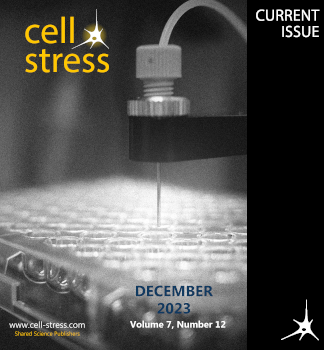Immunometabolic cross-talk in the inflamed heart
IF 4.1
Q2 CELL BIOLOGY
引用次数: 16
Abstract
Inflammatory processes underlie many diseases associated with injury of the heart muscle, including conditions without an obvious inflammatory pathogenic component such as hypertensive and diabetic cardiomyopathy. Persistence of cardiac inflammation can cause irreversible structural and functional deficits. Some are induced by direct damage of the heart muscle by cellular and soluble mediators but also by metabolic adaptations sustained by the inflammatory microenvironment. It is well established that both cardiomyocytes and immune cells undergo metabolic reprogramming in the site of inflammation, which allow them to deal with decreased availability of nutrients and oxygen. However, like in cancer, competition for nutrients and increased production of signalling metabolites such as lactate initiate a metabolic cross-talk between immune cells and cardiomyocytes which, we propose, might tip the balance between resolution of the inflammation versus adverse cardiac remodeling. Here we review our current understanding of the metabolic reprogramming of both heart tissue and immune cells during inflammation, and we discuss potential key mechanisms by which these metabolic responses intersect and influence each other and ultimately define the prognosis of the inflammatory process in the heart.炎症心脏的免疫代谢串扰
炎症过程是许多与心肌损伤相关的疾病的基础,包括没有明显炎症致病成分的疾病,如高血压和糖尿病心肌病。心脏炎症的持续会导致不可逆的结构和功能缺陷。有些是由细胞和可溶性介质对心肌的直接损伤引起的,也有由炎症微环境维持的代谢适应引起的。众所周知,心肌细胞和免疫细胞在炎症部位都会经历代谢重编程,这使它们能够应对营养和氧气供应减少的问题。然而,与癌症一样,对营养的竞争和信号代谢产物(如乳酸盐)产生的增加引发了免疫细胞和心肌细胞之间的代谢串扰,我们认为,这可能会打破炎症解决与不良心脏重塑之间的平衡。在这里,我们回顾了我们目前对炎症期间心脏组织和免疫细胞代谢重编程的理解,并讨论了这些代谢反应相互交叉和影响的潜在关键机制,最终确定了心脏炎症过程的预后。
本文章由计算机程序翻译,如有差异,请以英文原文为准。
求助全文
约1分钟内获得全文
求助全文
来源期刊

Cell Stress
Biochemistry, Genetics and Molecular Biology-Biochemistry, Genetics and Molecular Biology (miscellaneous)
CiteScore
13.50
自引率
0.00%
发文量
21
审稿时长
15 weeks
期刊介绍:
Cell Stress is an open-access, peer-reviewed journal that is dedicated to publishing highly relevant research in the field of cellular pathology. The journal focuses on advancing our understanding of the molecular, mechanistic, phenotypic, and other critical aspects that underpin cellular dysfunction and disease. It specifically aims to foster cell biology research that is applicable to a range of significant human diseases, including neurodegenerative disorders, myopathies, mitochondriopathies, infectious diseases, cancer, and pathological aging.
The scope of Cell Stress is broad, welcoming submissions that represent a spectrum of research from fundamental to translational and clinical studies. The journal is a valuable resource for scientists, educators, and policymakers worldwide, as well as for any individual with an interest in cellular pathology. It serves as a platform for the dissemination of research findings that are instrumental in the investigation, classification, diagnosis, and therapeutic management of major diseases. By being open-access, Cell Stress ensures that its content is freely available to a global audience, thereby promoting international scientific collaboration and accelerating the exchange of knowledge within the research community.
 求助内容:
求助内容: 应助结果提醒方式:
应助结果提醒方式:


